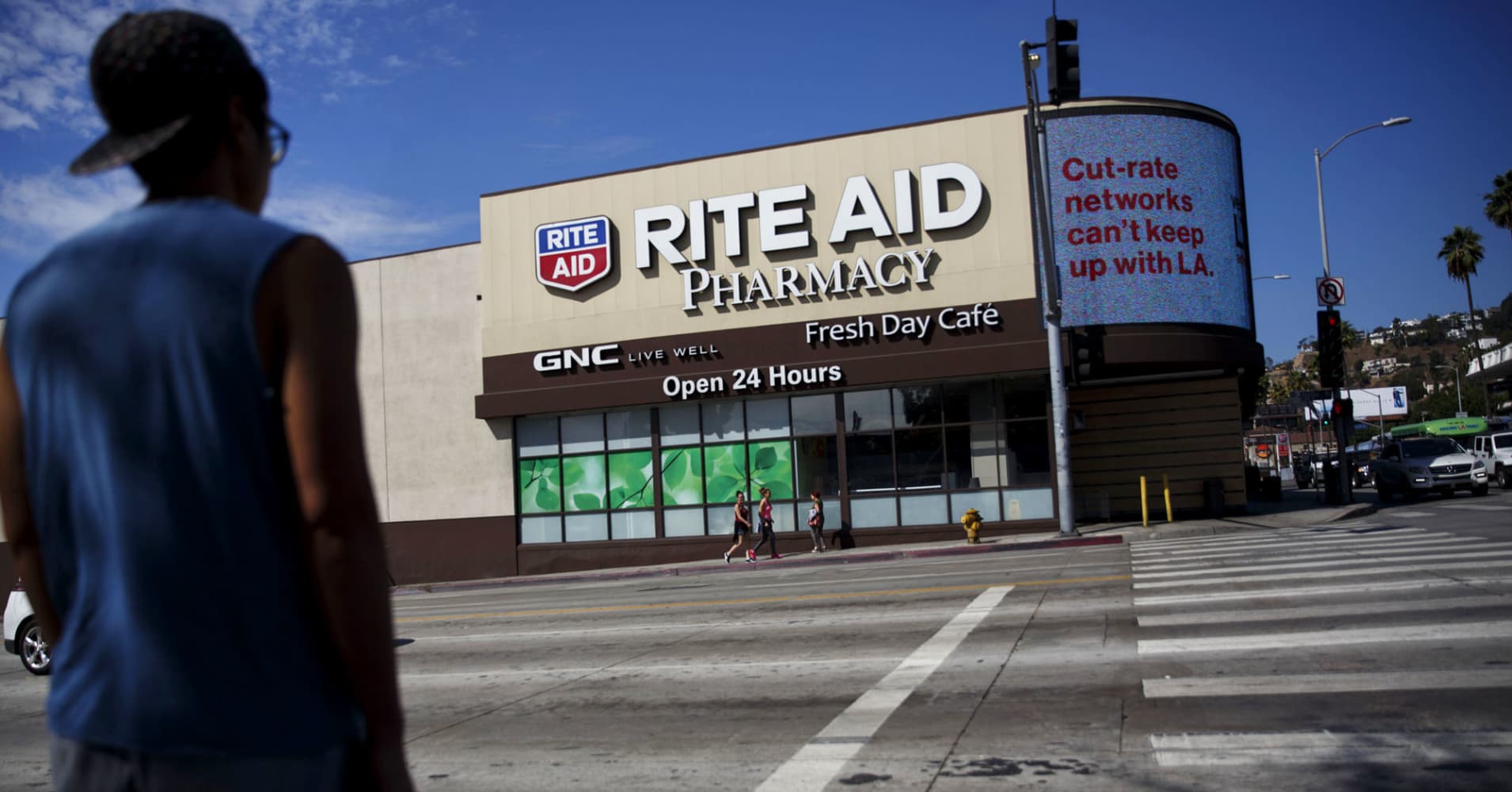
Rite Aid is at risk of being delisted from the New York Stock Exchange and considering a reverse stock split to prop its share price above $1 to comply with the exchange’s trading rules, the company said Friday.
Shares of the drugstore chain have fallen 64 percent over the past year, down to 75 cents a share as of Thursday’s close from $2.11 on Jan. 3, 2018. Rite Aid’s stock has hovered under $1 per share over the past month, breaking NYSE’s rule. The exchange notified Rite Aid on Thursday that its average share price was too low and placed its stock at risk of delisting.
Rite Aid has six months from the Jan. 3 notice notice to boost its average share price above $1 for a month. The company listed a reverse stock split, where companies combine shares to increase the price, as an option “to cure the share price non-compliance.”
The de-listing warning comes after a string of headaches for the company.
Regulators thwarted Rite Aid’s merger with Walgreens Boots Alliance in 2017, forcing Rite Aid to sell a chunk of its stores and leaving the chain with a much smaller footprint than its rivals. Then in 2018, Rite Aid abandoned its planned merger with grocery chain Albertsons facing shareholder opposition, throwing its future prospects into question.
A number of Rite Aid shareholders opposed the Albertons deal, saying the drugstore chain could get a better deal and it was a way for privately held Albertsons to go public without giving Rite Aid much. The companies aborted their merger agreement ahead of the shareholder vote in August.
After the deal collapsed, Rite Aid overhauled its board of directors. It separated the CEO and chairman position, naming director Bruce Bodaken chairman and leaving John Standley in place as CEO. It also added three independent directors.
Be the first to comment